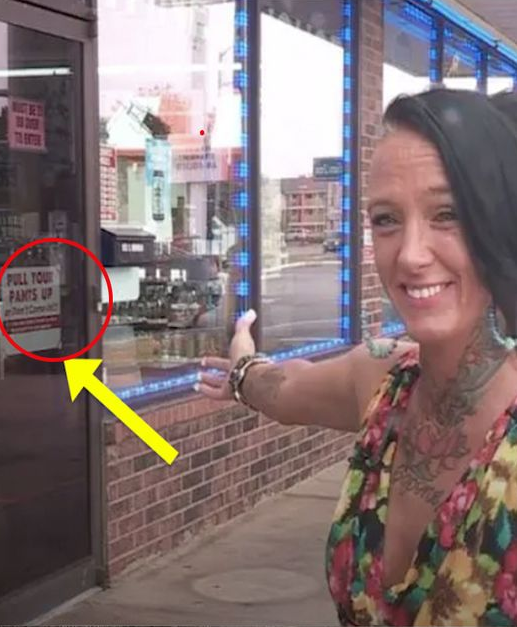Embracing the notion that contemporary society tends to take offense at almost anything has become increasingly common. While some argue against labeling this era the “snowflake” generation, there is an undeniable shift in societal norms.
Progress is evident in discarding outdated practices, yet there is a growing concern that our collective impulse to police each other might be reaching extremes.

A liquor store in Oklahoma recently grappled with this dilemma when a sign displayed in their window triggered a wave of criticism.
The sign at Midwest Wine and Spirits straightforwardly declared, “Pull your pants up or don’t come in,” accompanied by a plea for decency and respect, noting that no one wishes to witness exposed underwear.
At first glance, the message appears innocuous, not directly targeting any particular group or expressing discriminatory views. Nevertheless, the sign provoked a backlash, with some individuals expressing anger at the store’s perceived intrusion into personal fashion choices. The incident swiftly made its way to the internet, where it became the focal point of a heated online debate.
Chad Gilbert, a manager at the store, defended the sign, emphasizing that while low-hanging pants may be a fashion statement for some, he finds it personally offensive. Another employee pointed out a practical aspect, stating that individuals with sagging pants are more likely to engage in theft.
As the controversy gained traction, reports indicate that it quickly went viral. Local customer Sunshine Weatherby offered a perspective, acknowledging that such a dress code might be understandable in certain settings like a church, but argued that a liquor store, with its relaxed atmosphere, shouldn’t raise the same concerns. She remarked, “I’ve seen worse at a liquor store.”
This incident highlights the fine line between addressing genuinely offensive behavior and potentially overreaching in attempts to regulate personal choices. In an era of instant online scrutiny, even seemingly mundane issues can escalate into widespread debates, reflecting the complex interplay between societal norms and individual expressions.
